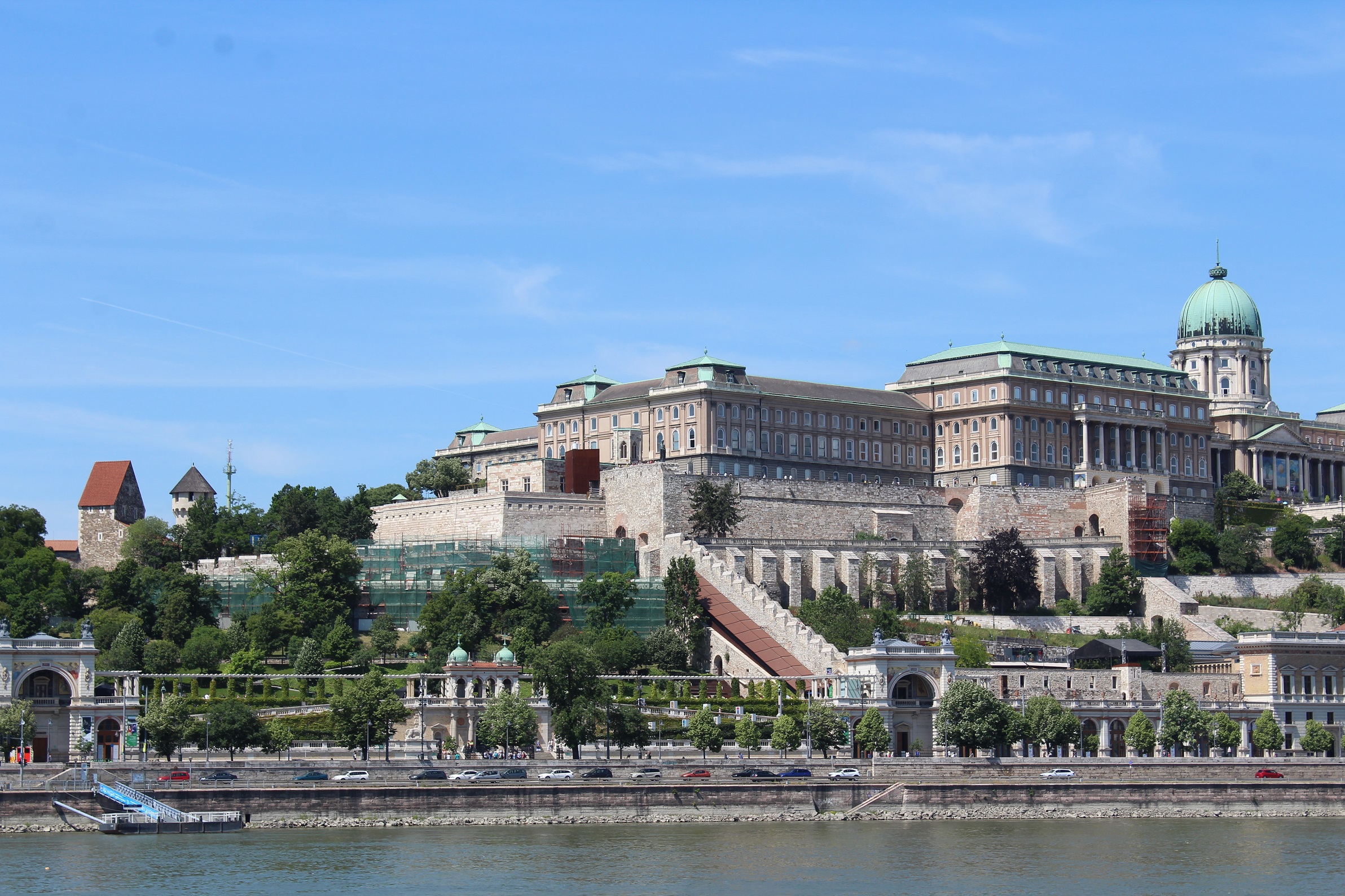.
Europe
European Union
July 9, 2025 Throughout the post-Cold War era, the European Union (EU) relied on four key assumptions: the United States’ willingness to shoulder the primary responsibility for European security, the reliability of Russia as the major source of energy, China’s status as a major growth market for European goods, and the budgetary durability of prioritizing social benefits over security needs. These assumptions, which worked for several decades, provided a foundation for the European way of life constructed around political stability, democratic governance, generous social programs, favorable borrowing terms from international capital markets, and the projected image of a reasonable, soft-power alternative to China, Russia, and the United States. These assumptions are no longer valid. The last three years have witnessed remarkable changes, mostly to Europe’s disadvantage. Considering the tectonic shifts in the global system, Europe is now under pressure on several fronts, one of the most important being trade negotiations with the United States. In 2023, the US-EU trade in goods and services stood at $1.4 trillion. Europe’s annual trade surplus with the United States - at $236 billion in 2024 - has become a sore point and target for the America First agenda. American grievances include high EU tariffs on certain goods such as fish, seafood, trucks, bikes, and automobiles, as well as EU digital regulations that 'unfairly' target large technology firms, an issue exacerbated by hefty fines on Apple and Meta. "Other issues include delays in EU approvals for genetically modified crops or bans on agricultural imports containing residues of certain types of pesticides". The Trump administration regards Europe as less of a friend and more of a challenge. Europe’s ability to finance its social largesse is'nt endless. In 2023, total social protection benefits expenditure in the EU was equal to 26.8 percent of the EU’s GDP. According to the OECD, France’s public social spending accounts for 31.6 percent of its GDP, Italy’s for 30.1 percent, and Germany’s for 26.7 percent. Many European countries face severe fiscal and debt management challenges as well as rising costs for social benefits networks. According to the IMF, Italy’s debt-to-GDP figure stands at 134.8 percent, Spain’s is at 105. percent, and France’s is at 110.6 percent. 'Demands for increased defense spending are likely to exacerbate fiscal pressures'. Social benefits may have to be cut, which would be highly unpopular and lead to demonstrations and riots. 'The NATO governments recently committed to allocating 5 percent of their GDPs to defense spending'. Where that money will come from, barring fiscal stringency in other realms, remains an issue. The pressures combined indicate that Europe will sign a trade deal with the United States soon. Europe’s ponderous decision-making processes and post-Cold War mentality, conditioned by a world of multilateralism, soft power, and generous social benefits, are now severely challenged. (Source: The National Interest - U.S.)
by Dr. MacDonald, the Chief Economist for Smith’s Research & Gradings, a Fellow with the Caribbean Policy Consortium, and a research fellow with Global Americans. He worked for the Office of the Comptroller of the Currency, Credit Suisse, Donaldson, Lufkin and Jenrette, KWR International, and Mitsubishi Corporation. His most recent book is The New Cold War, China and the Caribbean (Palgrave Macmillan 2022).
Asia
Iran
08.07.2025 Results of the confrontation with Israel. The Israeli attack on Iran was the most serious test of the strength of the Islamic Republic since the Iran-Iraq War. It led to significant human, material and reputational losses. However, even with the help of the United States, Israel failed to achieve the main goals of the attack: to destroy Iran’s nuclear programme and overthrow the country’s government. It united Iranians on a national and patriotic basis, and strengthened the determination of the Islamic Republic’s leadership to firmly confront external challenges. Tehran has no intention of curtailing its nuclear programme and its enrichment activities, in particular. It is premature to talk about the end of the Iranian-Israeli confrontation. The idée fixe for Israel has been and remains the destruction of Iran’s nuclear programme, which, according to Tel Aviv, primarily serves as a means of creating nuclear weapons. The Trump administration resumed negotiations with Tehran over its nuclear programme. Tehran has pragmatically agreed to negotiations based on the belief that diplomacy is the only viable solution to its nuclear issue, and that it might be possible to reach an agreement with Trump. Israel insisted that American negotiators issue an ultimatum demanding that Iran completely cease enrichment activities. When the negotiating process began to suggest compromise solutions with the possible continuation of low-level enrichment by Tehran, Israel launched a large-scale attack on Iran. ’US President Trump not only knew about Tel Aviv’s plans, but also greenlighted them, believing that forceful pressure on Tehran would force it to accept Washington’s maximalist demands regarding nuclear issues.’ Iran responded with sensitive missile and drone strikes, often overcoming Israel’s multi-component air defences and causing serious damage to Israel’s military-industrial infrastructure as well as residential neighbourhoods. Despite the intensive bombing, Israel failed to cause irreparable damage to the main nuclear infrastructure facilities deep underground. The United States came to the aid of its regional ally, dropping heavy bunker buster bombs on the facilities in Fordow, Natanz and Isfahan. But even these bombings, according to Iranian authorities, did not cause critical damage, since all the enriched uranium and centrifuges had been removed from the nuclear facilities in advance and dispersed to new storage locations. US President Trump, unwilling to get involved in a military conflict with Iran, announced the destruction of the Iranian nuclear programme and called on Israel and Iran to observe a ceasefire. Exhausted by the 12-day war, Tel Aviv and Tehran stopped bombing one another. The real damage done to the Iranian nuclear programme can only be clarified after an objective international investigation. This is currently difficult, since Iran has suspended cooperation with the IAEA, accusing its head Grossi of harbouring a biased attitude towards Tehran and spying for the West. Tehran will be ready to reconsider its decision if the Agency provides firm guarantees of the security of the Iranian nuclear programme (INP) and Iranian nuclear scientists. Regarding President Trump’s proposal to resume nuclear negotiations, Iranian Foreign Minister Araghchi noted that it is impossible to trust those who, in the midst of negotiations, launch a military operation against someone with whom they want to agree. Nevertheless, Tehran will most likely resume negotiations in order to avoid a new escalation of the situation. By supporting the Iranian leadership in repelling Israeli aggression, the Iranians, after the end of the critical phase of the conflict, made it clear that they expect the authorities to take active steps to resolve acute socio-economic problems and bring the country out of international isolation. The country’s leadership is being asked questions about why Iran was left defenceless in the face of Israeli aggression. Why did the protective system of regional proxy groups, the creation and strengthening of which took so much financial and material resources that could have been used to resolve internal Iranian problems, not work? The declared ceasefire remains fragile. Both sides are using it to restore destroyed military facilities, strengthen air defence systems, and replenish their missile and drone arsenal. Israel says it will prevent Iran’s efforts to restore its nuclear and missile programmes. Hypothetically, to destroy Iran’s nuclear infrastructure in its entirety is only possible as a result of a ground operation, which neither Israel nor the United States are ready to commit to. The only way left to resolve the Iranian nuclear problem is through political and diplomatic means. It is necessary to agree on mutually acceptable, controlled limits on Iran’s nuclear activities. (Source: Valdai Discussion Club - Russia)
by Maryasov, Ambassador Extraordinary and Plenipotentiary of Russia to Iran (2001-2005)
North America
United States
09.07.2025 Trump met yesterday with Israeli Prime Minister Benjamin Netanyahu for the second time this week. The talks in the Oval Office lasted for over an hour. Netanyahu’s official X account posted a brief statement after the meeting, saying the prime minister concluded his second meeting with President Trump. A Qatari delegation arrived at the White House ahead of the Trump-Netanyahu meeting and held talks for several hours with senior officials. Earlier yesterday, Netanyahu met with Vice President Vance and visited Capitol Hill, telling reporters after a meeting with House Speaker Johnson that Israel still has to ’finish the job’ in Gaza, including releasing hostages and destroying Hamas' military and governance capabilities. He said he may discuss additional items with Trump later in the visit. US special envoy for the Middle East Witkoff said yesterday that after two days of proximity talks he is hopeful that a 60-day ceasefire in the Gaza Strip will be agreed to by the week's end following progress in talks. (Source: Anadolu Agency - Turkey)
July 8, 2025 - 12:49 Trump and Netanyahu met for several hours in Washington. Trump's third face-to-face encounter with Netanyahu since returning to office in January came just over two weeks after the president ordered the bombing of Iranian nuclear sites in support of Israeli airstrikes. Before heading to Washington, the Israeli leader said his discussions with Trump could help advance negotiations under way in Qatar between Israel and the Palestinian militant group. Netanyahu's visit follows Trump's prediction, on the eve of their meeting, that such a deal could be reached this week. Ahead of their visit, Netanyahu told reporters Israeli negotiators were driving for a deal on Gaza in Doha, Qatar's capital. Israeli officials also hope the outcome of the conflict with Iran will pave the way for normalization of relations with more of its neighbors such as Lebanon, Syria and Saudi Arabia. Netanyahu met earlier yesterday with Witkoff and Secretary of State Rubio. President Trump, hosting Israeli Prime Minister Benjamin Netanyahu at the White House yesterday, said his administration would be meeting with Iran. The two leaders, with their top advisers, held a private dinner in the White House Blue Room. "We have scheduled Iran talks, and they ... want to talk. They took a big drubbing,". Trump also said he would like to lift sanctions on Iran at some point. Iranian President Pezeshkian said in an interview released yesterday that he believed Iran could resolve its differences with the US through dialogue. Trump and his aides appeared to be trying to seize on any momentum created by the weakening of Iran, which backs Hamas, to push both sides for a breakthrough in the 21-month Gaza war. President Trump indicated progress on a controversial effort to relocate Palestinians out of Gaza, suggesting that the residents could move to neighboring nations. We've had great cooperation from ... surrounding countries, great cooperation from every single one of them. So something good will happen, Trump said. We're working with the US very closely about finding countries that will seek to realize what they always say, that they wanted to give the Palestinians a better future. I think we're getting close to finding several countries, Netanyahu said. Gazans criticized the proposal and vowed never to leave their homes in the coastal enclave. Human rights groups condemned the plan as ethnic cleansing. During their meeting, Netanyahu gave Trump a letter that he said he had used to nominate the US president for the Nobel Peace Prize. Trump, appearing pleased by the gesture, thanked him. Outside, hundreds of protesters, many wearing Palestinian keffiyeh scarves and waving Palestinian flags, gathered near the White House, waving banners that read Stop Arming Israel and Say No to Genocide. They also called for Netanyahu's arrest, referring to the International Criminal Court's arrest warrant against the Israeli leader over alleged war crimes in Gaza. Netanyahu was due to meet Vice President Vance. He planned to visit the US Capitol today to see congressional leaders. (Source: The Korea Herald - South Korea / Reuters - United Kingdom)
(8 July 2025, 10 CEST) Trump says Ukraine will receive more weapons after US pause on shipments. (Source: BBC - United Kingdom)
(8 July 2025) 08:30 Netanyahu’s visit to the White House - his third since Trump took office in January - comes as the two leaders take a victory lap on the heels of the 12-day war between Israel and Iran. Trump helped broker a ceasefire between Israel and Iran to end the fighting and is now pressuring the Islamic Republic to return to negotiations. At the dinner, Trump said the US and Iran were set to meet soon and reiterated that he’s open to lifting sanctions on Iran. His envoy Witkoff told reporters that the US and Iran would meet within the next week. “I would love to be able to, at the right time, take those sanctions off, give them a chance at rebuilding,” Trump said at the dinner with Netanyahu. “Because I’d like to see Iran build itself back up in a peaceful manner, and not going around saying ‘Death to America, Death to the USA, Death to Israel,’ as they were doing.” Netanyahu is visiting Washington as the Trump administration pushes for a halt to the war in Gaza, with the US president raising hopes for a deal that could stop the fighting and see the release of hostages still being held by Hamas. Trump said last week that a ceasefire could be close to the conflict that has raged since the attack by Hamas on Israel in October 2023 and which has threatened to further destabilize the region. Trump and Netanyahu suggested a ceasefire was in reach, and the Israeli leader hinted that he would be willing to expand the Abraham Accords that normalized Israel’s relations with several regional nations. “I think we can work out a peace between us and the rest of the Middle East with President Trump’s leadership,” Netanyahu said. Netanyahu has accepted a proposal put forward by Trump that would pause fighting in Gaza for 60 days and see the return of some hostages. Hamas said last week it had responded positively to the proposed deal and was ready to immediately enter negotiations. International pressure is mounting on Israel to end its war in Gaza as more than 56,000 Palestinians have been killed in the military campaign, according to the Hamas-run health ministry. Aid agencies are warning the 2 million residents of Gaza are at risk of famine. Hamas, designated a terrorist organization by the US and European Union, still holds about 50 hostages, of whom Israel believes 20 are still alive. (Source: Luxembourg Times / Bloomberg - U.S.)
Tuesday 08 July 2025 07:26 BST Trump gushed over Israeli prime minister Benjamin Netanyahu after being presented with a Nobel Peace Prize nomination during their meeting at the White House yesterday. ’He's forging peace, as we speak, in one country, in one region after the other,’ Mr Netanyahu said. ’Coming from you in particular, this is very meaningful,’ Mr Trump said in response, adding: ’It's a great honour.’ (Source: The Independent
08/07/2025 - 03:17 Trump reignited his trade war by threatening more than a dozen countries with higher tariffs yesterday, including key allies Japan and South Korea. Then he extended the deadline for countries to negotiate his sweeping tariffs to August 1. Tokyo and Seoul would be hit with 25 percent tariffs on their goods, he wrote. Countries including Indonesia, Bangladesh, Thailand, South Africa and Malaysia were slapped with duties ranging from 25 percent to 40 percent. Trump warned of further escalation if there was retaliation against the levies. Japan's Prime Minister Shigeru Ishiba said Sunday that he won't easily compromise in trade talks with Washington. Companies from Japan and South Korea have made significant manufacturing investments in the US in recent years. Trump has also threatened another 10 percent tariff on countries aligning themselves with the emerging BRICS nations, accusing them of Anti-American policies after they slammed his duties at a summit. (Source: France 24 with AFP = France)
July 8, 2025 When he was named director of the White House Office of Presidential Personnel under U.S. President Trump, a media report called Gor “maybe the most powerful man you’ve never heard of.” Gor’s public profile has increased more recently, as he continued his work overseeing appointments of thousands of officials for the Trump administration. The Times of Malta and OCCRP have obtained a notarized Maltese property record that shows Gor’s origins. He was born Gorokhovsky on November 30, 1986, in Tashkent, Uzbekistan, which was part of the Soviet Union at the time. The December 2024 profile of Gor by the Washington Post called him an immigrant from the Mediterranean island nation of Malta. His mother created a Maltese company in 1994, listing her nationality as Israeli. When he was a boy, Gor’s family emigrated to the U.S., where he became a citizen. His path to politics led him eventually to a job with Republican Senator Paul, and then into Trump’s orbit. Gor left Paul’s office in 2020 to work as chief of staff on the Trump Victory Finance Committee for the failed re-election campaign. He also co-founded a conservative publishing company with Trump Jr. called Winning Team Publishing. (Source: Organized Crime and Corruption Reporting Project - U.S.)
7/8/2025 An impostor pretending to be Secretary of State Rubio contacted foreign ministers, a U.S. governor and a member of Congress by sending them voice and text messages that mimic Rubio’s voice and writing style using artificial intelligence-powered software, using both text messaging and the encrypted messaging app Signal, which the Trump administration uses extensively. In May, someone breached the phone of White House Chief of Staff Wiles and began placing calls and messages to senators, governors and business executives while pretending to be Wiles. Impersonating a federal officer or employee to deceive or obtain something is a crime. (Source: MSN / The Washington Post = U.S.)
.5 7 13 16:33





